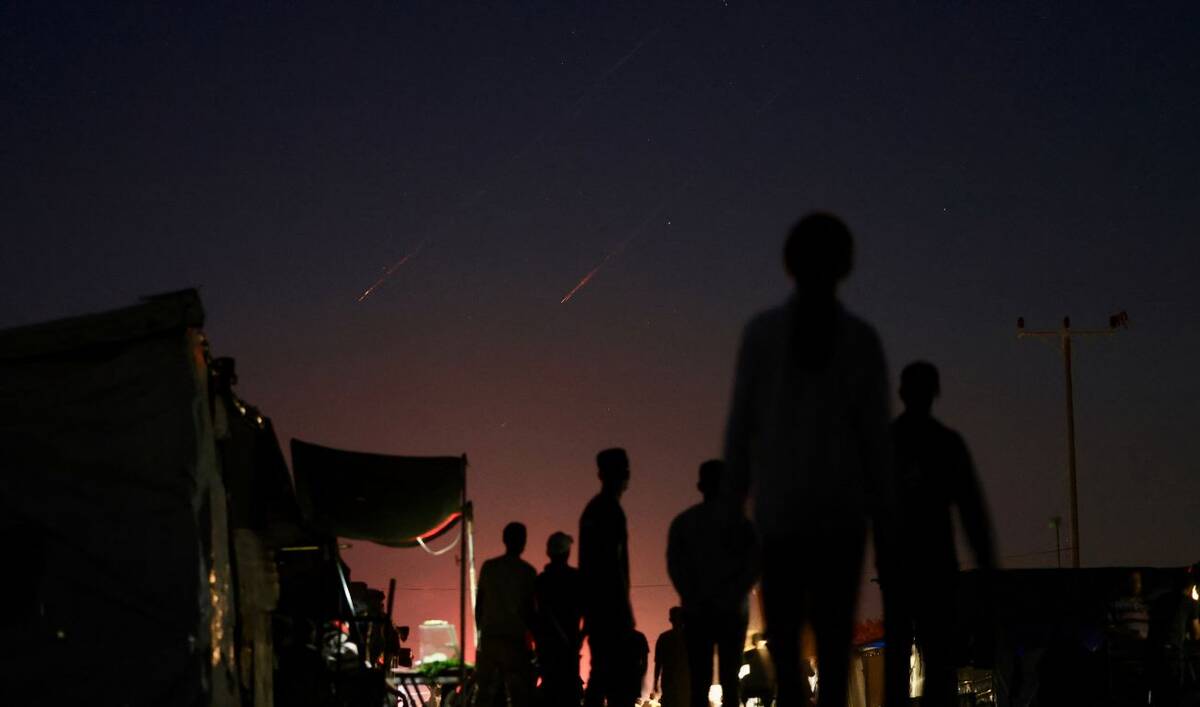ISLAMABAD: Pakistanis are observing a ŌĆśDay of GratitudeŌĆÖ today, Friday, to honor a response by armed forces and the public to this monthŌĆÖs Indian strikes against Pakistan, with President Asif Ali Zardari describing it as ŌĆ£great moment.ŌĆØ
India struck several Pakistani cities with missiles on May 7 amid heightened tensions over an attack last month in Indian-administered Kashmir. Pakistan said it immediately responded to Indian strikes and downed six Indian fighter jets, including three French-made Rafales.
India has not officially confirmed the downing of jets, but its air force chief this week told a news conference in New Delhi that ŌĆ£losses are a part of combat.ŌĆØ Both neighbors traded air, missile, drone and artillery fire for four days before the United States brokered a ceasefire on May 10.
In his message on the Day of Gratitude, President Zardari said the success of ŌĆśOperation Bunyan-um-MarsoosŌĆÖ against India belongs to both the armed forces and the entire Pakistani nation, who stood like an iron wall against ŌĆ£enemy aggression.ŌĆØ
ŌĆ£I am proud of our Armed forces who responded to Indian provocation with precision, professionalism, and strength. I am glad that the world witnessed and acknowledged PakistanŌĆÖs patience and restraint as well as the operational effectiveness that compelled the enemy to cease its aggression. We stood firm. We stood united. And we emerged victorious with dignity,ŌĆØ he said in a statement.
ŌĆ£Pakistan is a peace-loving country and does not harbor aggressive design against any country. However, let there be no doubt: Pakistan will never compromise on its sovereignty, territorial integrity, or its core national interests. Any aggression against our homeland will be met with full force.ŌĆØ
On Friday morning, a 31-gun salute was held in the federal capital of Islamabad and 21-gun salutes in provincial capitals. Several rallies, gatherings, events and visits to national memorials are expected to held, mainly after Friday prayers, across the South Asian country. Public and private institutions will hold commemorative programs as well.
Prime Minister Shehbaz Sharif said Pakistani armed forces, with their response to Indian strikes, wrote a "golden chapter in the military history," the Radio Pakistan broadcaster reported.
"Our Shaheens (PAF pilots) hammered the enemy and gave it a befitting reply," he said in his message. "This is not only victory of our Armed Forces but also success of our principles as honorable and dignified nation."
India and Pakistan, both bitter rivals who possess nuclear weapons, have fought three wars since 1947 after gaining independence from British colonial India. The root cause of their conflict is the disputed Himalayan region of Kashmir, which they both claim in full but rule only in part.
This monthŌĆÖs military conflict between the rivals was also triggered by an attack by gunmen on tourists in Indian-administered KashmirŌĆÖs Pahalgam town, which killed 26 people on April 22. India blamed the attack on Pakistan. Islamabad denies the charge and has called for a credible, international probe into it.
On Thursday, Pakistan PM Sharif, accompanied by Army Chief General Asim Munir and senior members of the cabinet, visited Pakistan Air Force (PAF) base Kamra to laud Pakistani pilots for successfully defending the country, hours after Deputy Prime Minister Ishaq Dar informed lawmakers in parliament that the ceasefire agreement between Islamabad and Delhi has been extended till Sunday.
ŌĆ£For now, these are military-to-military communications, so obviously, then political dialogue will take place,ŌĆØ he said. ŌĆ£The resolution of all issues lies there.ŌĆØ
Also on Thursday, IndiaŌĆÖs Foreign Minister Subrahmanyam Jaishankar said a key water treaty, which governs river water critical to parched Pakistan for consumption and agriculture, would remain suspended until ŌĆ£cross-border terrorism by Pakistan is credibly and irrevocably stopped.ŌĆØ New Delhi suspended the treaty a day after the April 22 attack.
Dar responded by calling the treaty ŌĆ£a no-go area.ŌĆØ
ŌĆ£The treaty canŌĆÖt be amended, nor can it be terminated by any party unless both agree,ŌĆØ he told parliament.
Militants have stepped up operations on the Indian side of disputed Kashmir region since 2019, when Prime Minister Narendra ModiŌĆÖs Hindu nationalist government revoked the regionŌĆÖs limited autonomy and imposed direct rule from New Delhi.
╠²



















